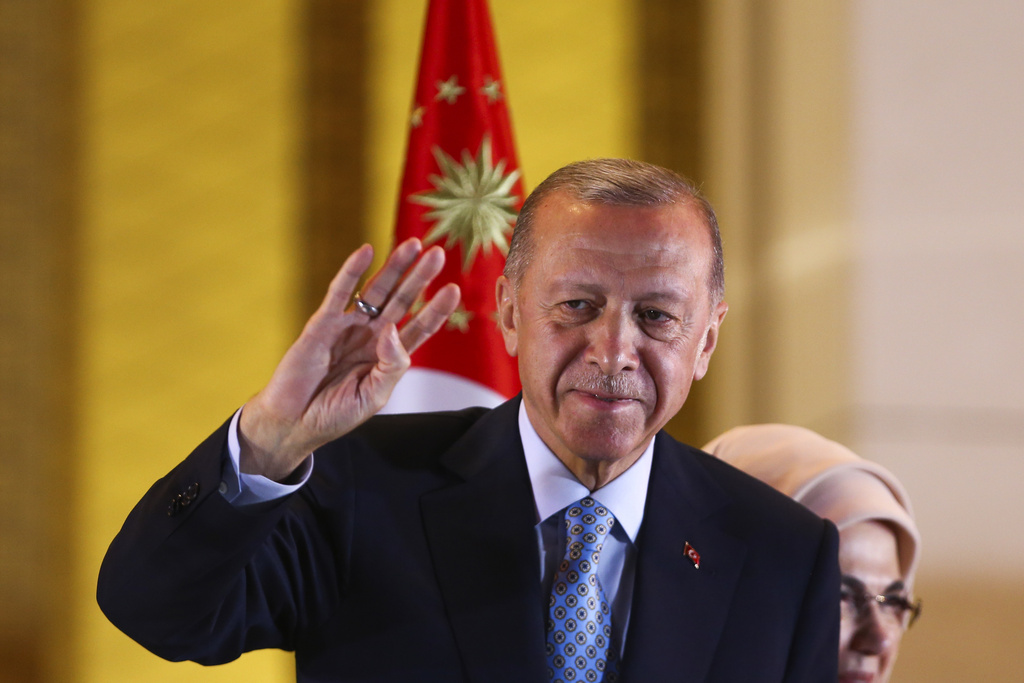We are in the new Great Game where five ‘kings’ — Iran, Russia, Communist China, Sunni Islamist states, and Turkey — take turns harassing the West.
Now that Iran is weakened, it’s time to turn our attention to Turkey. It will take more than the destruction of Hamas, the disarmament of Hezbollah, and the fall of the Assad dictatorship to put an end to the threat posed to the world by the Iranian Revolutionary Guards.
Things, though, are moving in the right direction. The famous Shia crescent, which stretched from Tehran to Baghdad, Damascus and Beirut and which had the peoples of the region in a vise, is in tatters, thanks to Israel. We are in the midst of World War III, a global war waged by those I have called “the five kings” — Iran, Russia, Communist China, the Sunni Islamist states, and Turkey.
We are in the new Great Game where the five seem to take turns harassing the West and subduing those who, outside the West, recognize its values. The year 2024 concludes with Iran trying to tighten its ranks, Russia wanting to end its ruinous war against Ukraine, Sunni Islamist states cautiously awaiting Trump’s return, and the People’s Republic of China grappling with an unprecedented economic crisis shaking the neo-capitalist model it believed to be infallible.
Now it’s Turkey’s turn to take the lead. This is true in the Balkans, particularly in my dear Bosnia-Herzegovina, where President Erdogan seizes every opportunity to fill the void left, since the siege of Sarajevo, 30 years ago, by Europe’s long and tragic resignation.
It is true in Armenia where, a year after the assault on Nagorno-Karabakh and the population displacements that followed, Mr. Erdogan has not abandoned his pan-Turkist dream and still covets the Syunik region in the south.
It is true in Iran where the alliance does not exclude low blows and where Mr. Erdogan is, behind the scenes, through his allies in Azerbaijan, the most active supporter of the separatist aspirations of an Azeri minority that constitutes 11 percent of the country’s population.
It is clear when listening to the chilling speech he just delivered in Sakarya, in front of the leaders of his party. He stated his intention to revisit the treaties that, by ending World War I, consecrated the dismemberment of the Ottoman Empire.
It is evident in Syria since the emergence of this strange figure who no longer wants to be called Al-Joulani, his name from his Al Qaeda days, and who could only lead his “revolution” with the political, financial, and military assistance of the Turkish state.
So, will we let this happen?
Will we accept that the declining influence of Shia extremism be replaced by that of the Muslim Brotherhood? And what about the Kurds, who are, alongside Israel, our best allies in the region? Their fighters drove ISIS out of Iraq and Syria and we subsequently betrayed them. Will they have to pay the price for this emerging regional order?
This is the intention of the elements of the “Syrian National Army,” who, starting December 8, with the support of Ankara’s air force, drove the Kurds out of Tal Rifaat and then Manbij. This is Mr. Erdogan himself, once again bringing up his old, absurd, and racist theory regarding the affinity of the Arab people, but not the Kurdish people, with the desert regions of northeastern Syria, thus justifying, in advance, forced migrations that resemble ethnic cleansing.
This is the meaning of what his defense minister, Yasar Guler, just said on December 15, declaring that it is “out of the question” to allow Kurdish YPG combat units to remain at the Turkish border, and that they now have a choice only between “dissolution” and “eradication.”
According to the same minister, in the same statement, this is the clearly expressed “will” of the Syrian “new administration,” which has no intention, as a perfect “proxy,” of allowing General Mazloum Abdi’s troops to “act alone” and in a “space of autonomy.”
And it is the haunting concern of this great stateless people, the Kurds, valiant but vulnerable: from Qamishli to Erbil, don’t they share with Jews, Armenians, and a few others the intimate knowledge of what genocide is and when it’s approaching?
Democracies are not powerless to oppose the infamy that is being prepared.
The Turkish economy is fragile and would not withstand sanctions. The United States still has a few hundred men on the ground, despite their withdrawal in 2019. And they have, along with Europe, considerable leverage: Turkey’s presence in NATO.
Will we make use of this leverage?
Will we brandish, even if it is complicated to implement, the threat of expulsion from an alliance that presupposes a minimum of shared values? Will we dare to tell Ankara: “Don’t touch our Kurdish friends… this is the ultimate red line… the West rebuilt itself 75 years ago on the ‘never again’ of genocide… stop”? With the war against Ukraine, this is a major political question of this terrible end to the year 2024.

